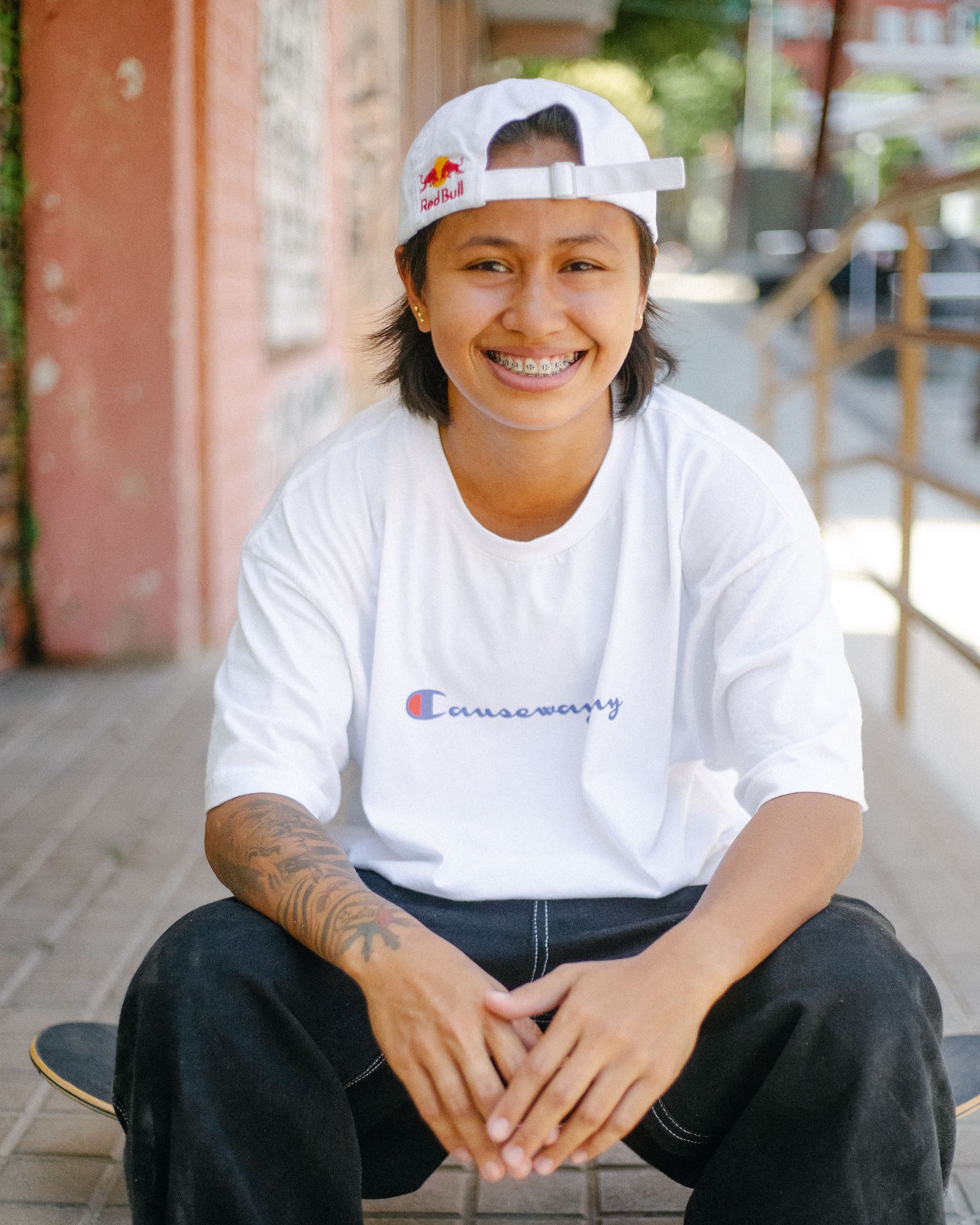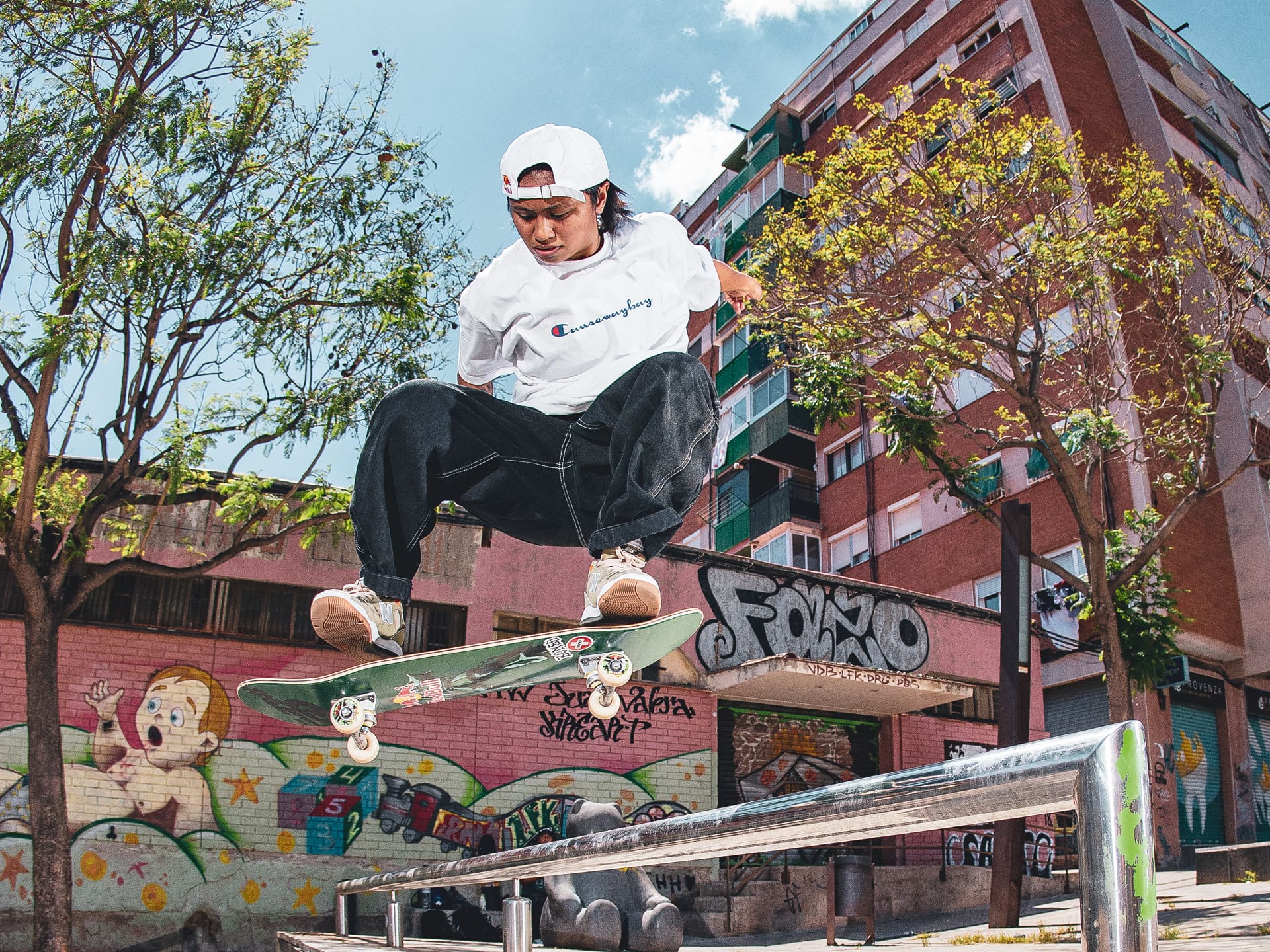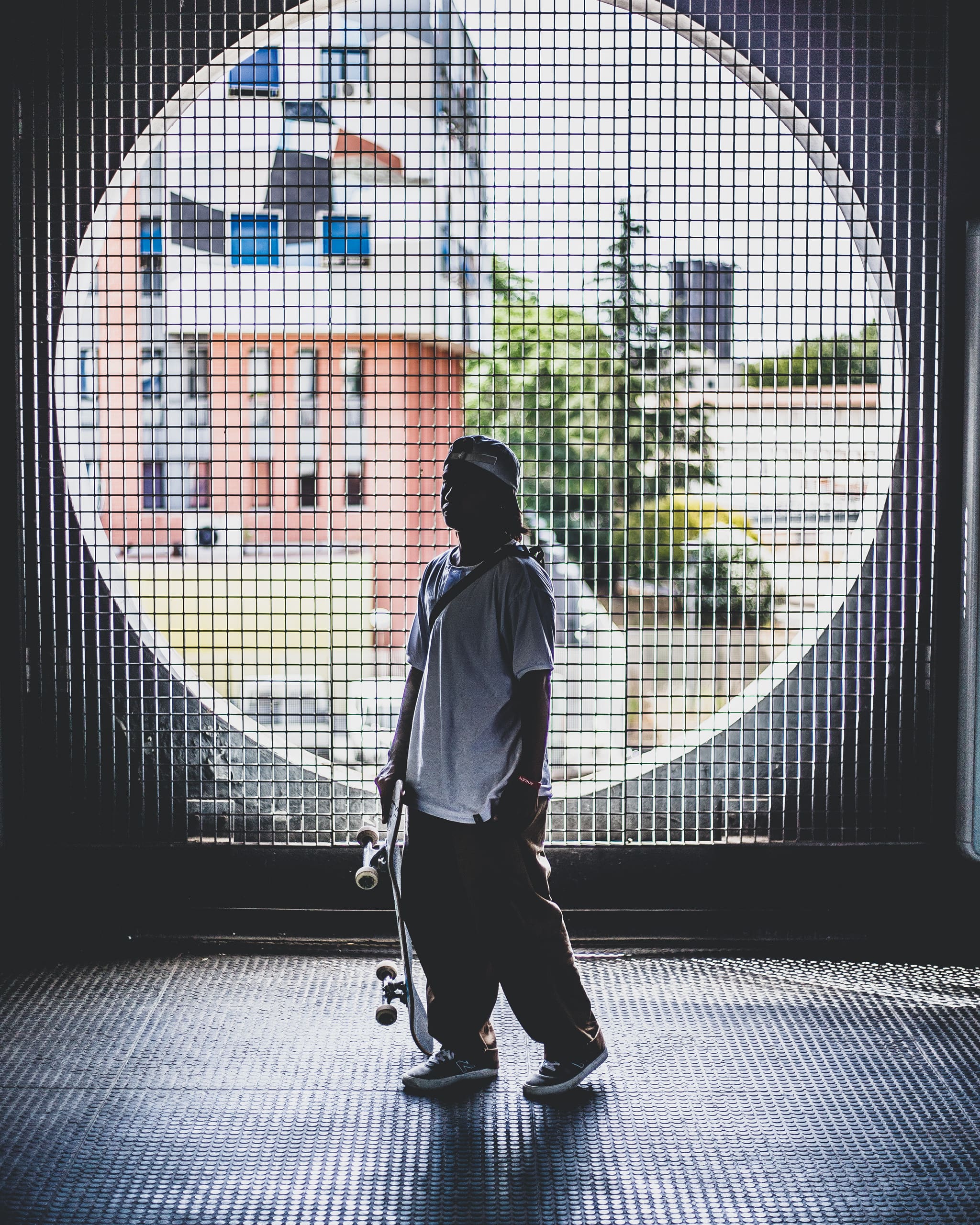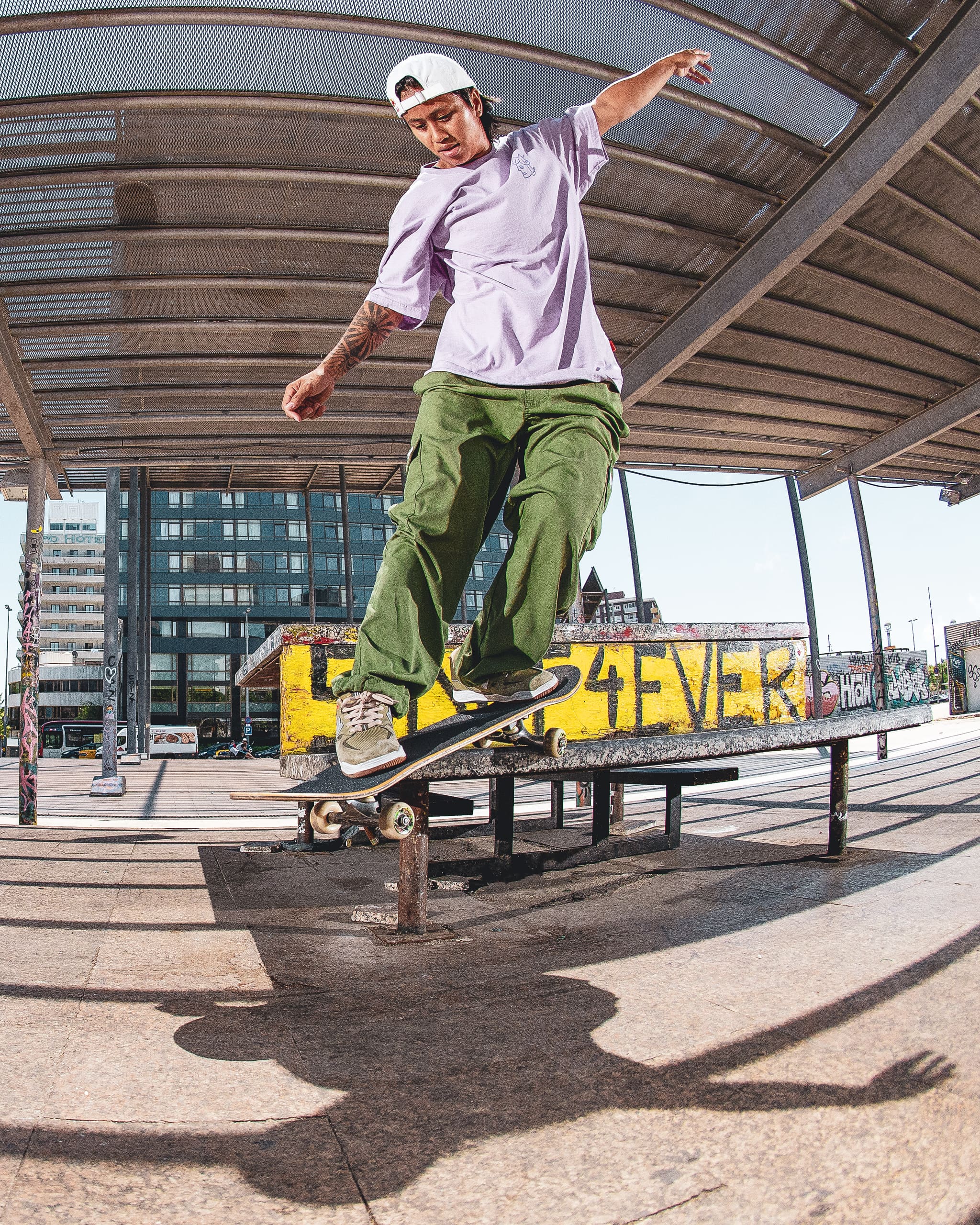Photograph by Ando
After her iconic global debut in Tokyo 2020, the Filipina skateboarder Margielyn Didal is back as she begins her journey to Paris 2024.
Skateboarders are public enemy number one in the realm of sports, of public spaces, and of cops. No one knows this better than Olympian skateboarder Margielyn Didal, who’s gone through every hurdle imaginable for a skateboarder. From the skater’s universal experience of having nowhere safe to skate, to the peculiarities of being a woman with no choice but to compete in men’s competitions—she stands among the most iconic competitive skateboarders of her generation.

Anthony Claravall, founder and coach for Skate Pilipinas, shares how the arrival of skateboarders like Margie signaled a pivotal moment for the skate scene. “In the ’80s, [skating] was more of a boys club. It was crazy to be a minority in skateboarding—it was kind of a white boy thing. If you were African-American or if you were Asian, you’d get questions like ‘Why are you skateboarding? That’s for white kids.’ But today it’s very, very inclusive.”
In an interesting turn in Tokyo 2020, Didal became the focal point of sports media coverage as she disrupted palatable displays of Olympic decorum: posting in-game TikToks with Brazil’s silver medalist, Rayssa Leal; joking around with skateboard legend Tony Hawk; and taking a glorious bow after she failed to make it to the succeeding rounds, unbothered by her obviously injured knee and ankle.
When asked about her skate footing, Didal describes her stance as “goofy,” and Claravall agrees: “Yeah, in more ways than one.”
A daughter of a carpenter and a street food vendor, Didal discovered skateboarding at 12 years old—regularly helping out her mom sell kwek-kwek near Cebu’s now-defunct Concave Skate Park.
Dani Bautista, who co-coaches Margie with Anthony and is also a founding member of Skate Pilipinas, recounted how everyday she’d curiously watch local skaters land tricks in the park and would eventually borrow the boards of regulars.
One Christmas, Margie was given a skateboard as a gift from one of Concave’s regulars. Once Didal had access to a skateboard, it was only uphill from there. “Eventually she just got better than everyone and started winning,” Bautista adds.

The Philippines has always been an ideal breeding ground for skateboarders. Bautista tells me how Filipinos have a “textbook skate mentality”—a strong DIY approach in the face of adversity. We are culturally known to be grounded in community and make do with what we have, skating through life.
When asked about Didal’s skating style, Claravall adds that she, like many other Filipino skaters, are street skaters but of a particular Filipino kind. With the lack of safe and accessible skate parks, Filipino skateboarders have no choice but to develop their skate in the car-centric terrain of the Philippines.
As a teenager, Didal started competing locally. Skateboarding, however, was still a male-dominated sport, even in Cebu. She mentions how she didn’t hesitate to join competitions in the men’s division because there were no platforms for women skateboarders then.
When Claravall was appointed to build a team for the New Balance Numeric Asia Skate Program in 2016, he recalled Bautista showing him a skate video of young Margie a couple years back. Remembering the video, he was determined to have Didal on his team.
“I would say within 30 seconds of first meeting her, I saw her do a kickflip and I was like ‘Okay, this girl’s got it,’” Claravall recalls. “Technical execution and style—she has it all.” Skateboarding is “a lot more intuitive” and is more than just landing a trick, he explains, likening it to dancing or putting on an outfit. “One looks like they just took it off a hanger and put it on, and one looks like they were born to wear it.”
What was previously a form of rebellious self-expression had become a sport, and with the formation of the Philippine National Skate Team, Margie earned her ticket to international training.

In preparation for the 2024 Summer Olympics in Paris, Claravall, Didal, and fellow teammate Christiana Means have been training around Barcelona and Rome to compete in the World Street Skateboarding Championships, an Olympic qualifier event.
“It’s a Herculean effort,” Claravall says, detailing how qualifying for the Olympics is a feat in itself, with both coaches marveling at how Didal has gotten to where she is: competing alongside the best skateboarders of the Philippines, her generation, and of the world.
Still in touch with the sport’s original counter-culture ethos, it seems as if the Philippine National Skate Team are at the cusp of rattling the status quo once again.
This story originally appeared in Vogue Philippines September 2022 Issue.
